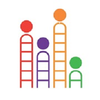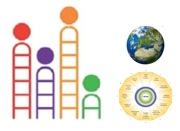
The third reason I decided to develop I Matter Training was that I had become increasingly interested in the overlaps between the difficulties in the children I was seeing in schools and in clinics and the diagnostic categories that were being used to describe them.
Have you noticed how we are using more and more diagnostic terms to describe children? Look for example at the rise in the use of such terms as ADHD, ASD, ADD, PTSD, OCD, PDD, PDA - The list can go on and on. Elaborations can be found in the diagnostic manuals known as DSM IV and ICD-10. Diagnosis is essentially a search for distinctive conditions that can be distinguished reliably from other distinctive conditions so as to finding a useful drug or therapy as a treatment. This is a medical model approach. Diagnosis is sometimes also used as a doorway to funding or a doorway to support groups.
I am a psychologist though and what makes a child psychologist different from someone with a medical training is that I want to understand how difficulties develop, and why they stick around. And in my clinical work what I find most striking is that more often than not there are huge overlaps between the difficulties described using these different labels. We can often use a multitude of labels to describe a child and find none that quite fits. Most importantly therefore, I want to understand how these difficulties have emerged. To do this I have found it is important to have a strong understanding of how typical development proceeds and how typical relationship patterns operate. I find that when you use a good understanding of development a lot of apparently confusing issues start to seem a lot less confusing and it starts to be much easier to know where to head and why.
I have repeatedly seen that families and professionals can sometimes become very focussed on the search for the right diagnosis whilst missing the opportunity to understand what might really be happening for a child within his/her relationships. What is exciting in my view is that when you draw the evidence all together and introduce some basic understanding of the way in which the brain functions we can for the first time start to be much more confident about what is happening and why at a much deeper level. Diagnosis becomes much less important than the understanding that we can have at this deeper level.
This doesn't mean that there are quick fixes or easy answers. Instead the evidence from a developmental point of view points to several key conclusions. One is that though all children are complex, some are more complex than others, and another is that as children develop in the context of relationships, we must pay attention to the understanding and skill of adults. The evidence clearly suggests that some children are going to need adults with much more advanced caring and parenting skills. Helping adults to acquire these skills therefore should be a key part of any intervention or support package regardless of the specific diagnostic label.
Receiving a diagnosis should therefore not be an end in itself, it should open up opportunities to learn and grow, but for this learning to happen, a map that acknowledges overlaps between diagnostic labels and different approaches to intervention can be really useful.
Again, I am jumping ahead as the fourth reason I decided to develop I Matter Training was that there were so many different approaches to intervention - sometimes at loggerheads with one another! Read my next blog..
I am a psychologist though and what makes a child psychologist different from someone with a medical training is that I want to understand how difficulties develop, and why they stick around. And in my clinical work what I find most striking is that more often than not there are huge overlaps between the difficulties described using these different labels. We can often use a multitude of labels to describe a child and find none that quite fits. Most importantly therefore, I want to understand how these difficulties have emerged. To do this I have found it is important to have a strong understanding of how typical development proceeds and how typical relationship patterns operate. I find that when you use a good understanding of development a lot of apparently confusing issues start to seem a lot less confusing and it starts to be much easier to know where to head and why.
I have repeatedly seen that families and professionals can sometimes become very focussed on the search for the right diagnosis whilst missing the opportunity to understand what might really be happening for a child within his/her relationships. What is exciting in my view is that when you draw the evidence all together and introduce some basic understanding of the way in which the brain functions we can for the first time start to be much more confident about what is happening and why at a much deeper level. Diagnosis becomes much less important than the understanding that we can have at this deeper level.
This doesn't mean that there are quick fixes or easy answers. Instead the evidence from a developmental point of view points to several key conclusions. One is that though all children are complex, some are more complex than others, and another is that as children develop in the context of relationships, we must pay attention to the understanding and skill of adults. The evidence clearly suggests that some children are going to need adults with much more advanced caring and parenting skills. Helping adults to acquire these skills therefore should be a key part of any intervention or support package regardless of the specific diagnostic label.
Receiving a diagnosis should therefore not be an end in itself, it should open up opportunities to learn and grow, but for this learning to happen, a map that acknowledges overlaps between diagnostic labels and different approaches to intervention can be really useful.
Again, I am jumping ahead as the fourth reason I decided to develop I Matter Training was that there were so many different approaches to intervention - sometimes at loggerheads with one another! Read my next blog..

Comments